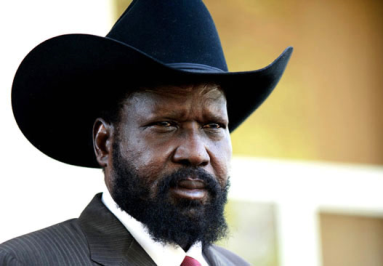S. Sudanese leader accused of making Dinka people suffer
October 12, 2017 (JUBA)- The Anglican Archbishop of South Sudan’s Northern Bahr el Ghazal province, Moses Deng Bol has protested the manner in which the president has been personally handled the situation in the county, saying his “inability” has led his ethnic Dinka to be viewed as complicities in the war by other ethnic communities.

“Dinkas are equally suffering just like other communities in South Sudan. But many Dinkas are either afraid or initially thought it is better to approach our President privately and inform him of failures of his Government which is always better than public criticism,” said Bol.
The religious leader said Kiir is often blocked by a small group who do not want anybody with different views to meet the former, which, he claimed, has made people from other communities to conclude that all the Dinkas support all the actions of the Juba government.
“[But] Now many Dinkas are coming out publicly because the hope of advising the President privately is simply not working and the hatred against the Dinka community is increasing”, stressed Bol.
The Archbishop said he and several other religious leaders had sought audiences with the president to share with him their views on how situations in the country could be improved, but were blocked by “elites” who did not want President Kiir to benefit from their views.
Last month, the South Sudan leader publicly said he regretted the suffering nearly four years of civil war has inflicted on the people.
“I am not happy. I am hurting inside. How can I be happy when I see my people suffering?” Kiir told the state-owned television (SSBC).
The South Sudanese leader, did not, however, hint on how his administration intends to end the conflict, which has killed tens of thousands of people and displaced millions into neighbouring nations.
Critics, however, described Kiir’s remarks as “crocodile” feelings and compassion, saying the solution to end the conflict was in his hand.
At least 7.5 million of the estimated 12 million South Sudanese will need assistance in 2017, the United Nations humanitarian respond plan showed.
Conflict broke out in South Sudan in mid-December 2013 following months of internal wrangling in the ruling party (SPLM) over leadership, vision of the party, reforms and democracy. The three-year-old war has killed thousands of people and displaced millions as refugees to neighboring countries. Also, an estimated 1.9 million others are internally displaced in the country, with thousands are sheltering at U.N protection of civilians’ sites in parts of the war-torn country.
(ST)
